Top 10 Most Popular World Heritage Sites of UNESCO
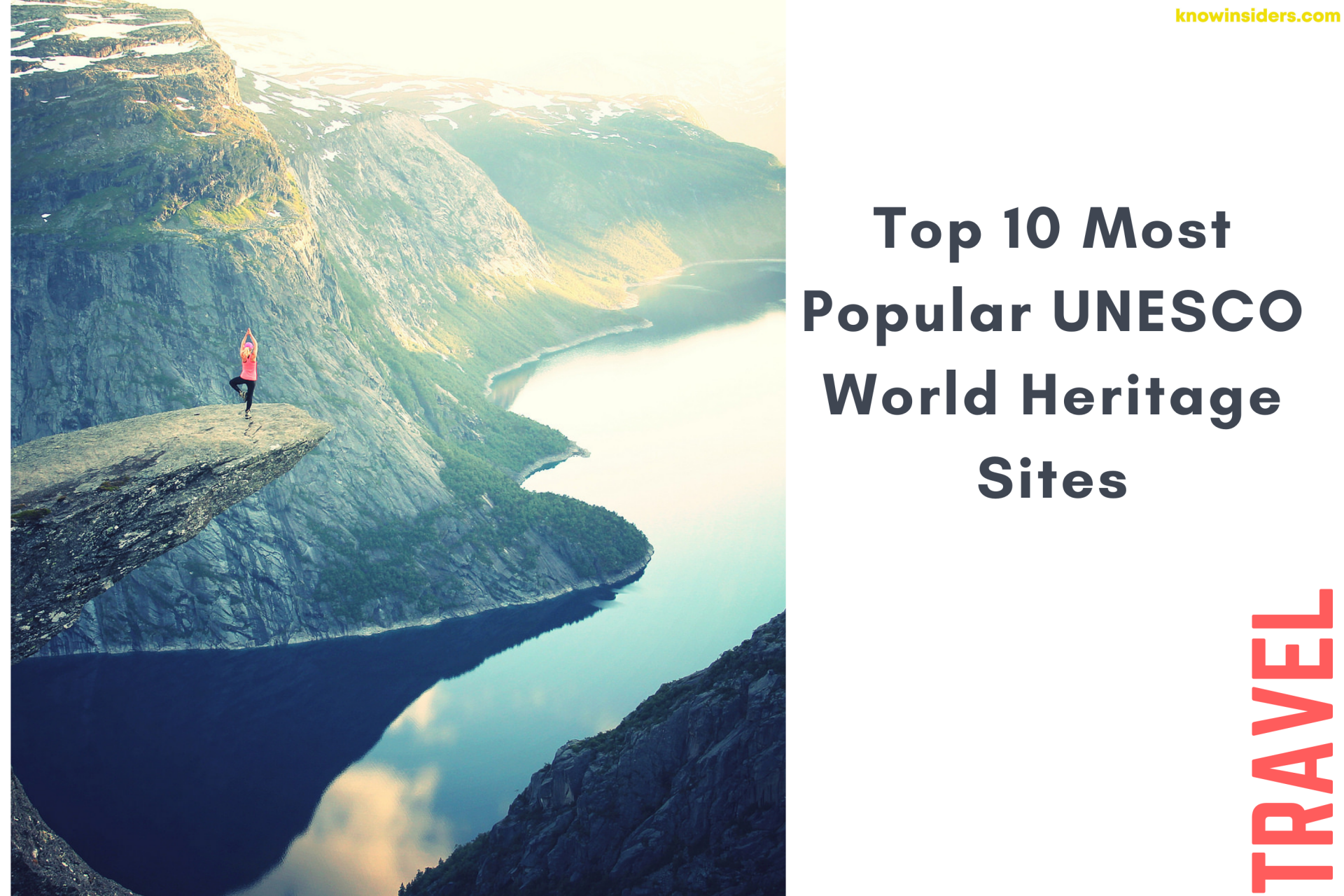 |
| Top 10 Most Popular World Heritage Sites of UNESCO. Photo KnowInsiders |
Following two world wars within 30 years, UNESCO was formed in 1945 with a clear goal; to unite people and encourage an appreciation for the world's diverse destinations and cultures.
75 years later, the organisation have identified 1,154 sites (897 cultural, 218 natural, and 39 mixed) as worthy of being on UNESCO World Heritage sites list.
Around the world, a spot on this list is still considered one of the best achievements a landmark can receive. Although, it's not the only institution that now has the power to put places on the map.
One company decided to combine information from UNESCO and Instagram to see what World Heritage sites were most popular on the social media platform in 2021.
Design Bundles, a digital design company, analysed 145 sites that had been tagged most often on Instagram this year and ranked them in order of posts.
Top 10 Most Popular UNESCO World Heritage Sites
(Voted By Instagram Users)
1. Historic Center of Rome: 61,244,436 votes
2. Rio de Janeiro: 45,039,569
3. Venice and its Lagoon: 25,755,922
4. Kyiv: 21,914,502
5.Historic Center of Florence: 21,516,815
6. Historic Center of Prague: 17,731,077
7. Budapest: 14,665,910
8. Brasilia: 13,277,931
9. Historic Center of Saint Petersburg: 11,987,336
10. City of Quito: 9,854,551
*****
What Are The Most Popular UNESCO World Heritage Sites?
1. Historic Center of Rome
Founded, according to legend, by Romulus and Remus in 753 BC, Rome was first the centre of the Roman Republic, then of the Roman Empire, and it became the capital of the Christian world in the 4th century. The World Heritage site, extended in 1990 to the walls of Urban VIII, includes some of the major monuments of antiquity such as the Forums, the Mausoleum of Augustus, the Mausoleum of Hadrian, the Pantheon, Trajan’s Column and the Column of Marcus Aurelius, as well as the religious and public buildings of papal Rome.
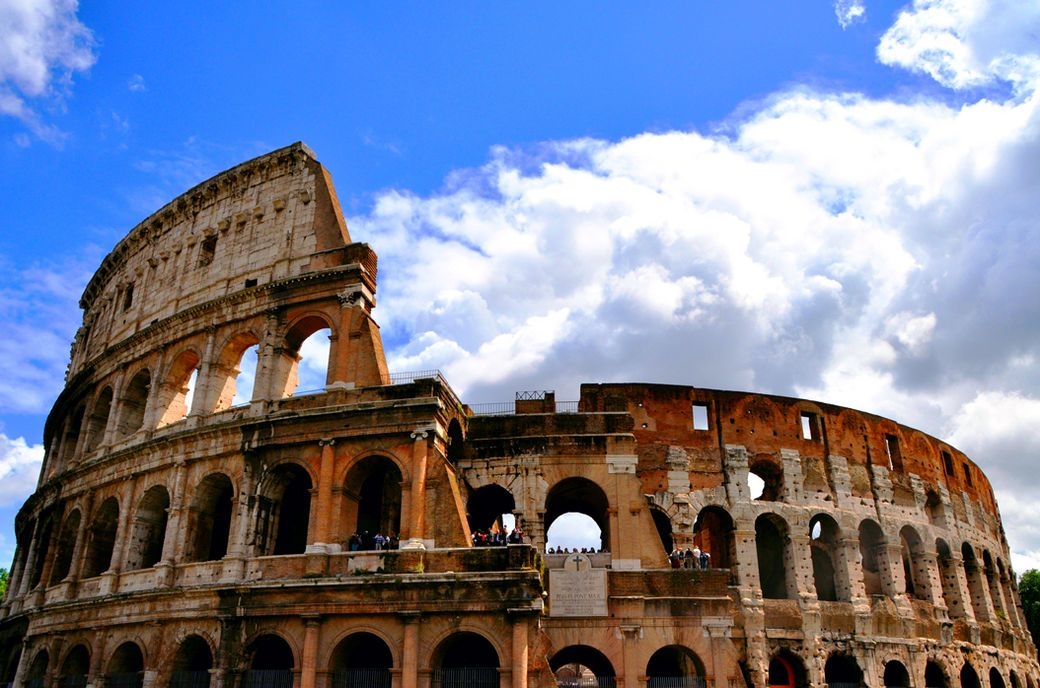 |
| Photo Pinterest |
The Rome inside the perimeter of the Aurelian Walls is divided into 22 districts or quarters: Monti, Trevi, Colonna, Campo Marzio, Ponte, Parione, Regola, Sant'Eustachio, Pigna, Campitelli, Sant'Angelo, Ripa, Trastevere, Borgo, Esquilino, Ludovisi, Sallustiano, Castro Pretorio, Celio, Testaccio, San Saba and Prati.
It was the Lateran Pacts, drawn between Italy and the Vatican State in 1929, to establish the exact number of Vatican properties located within Italian borders that could be defined as ‘extra-territorial’ and thus remain the exclusive property of the Holy See.
2. Rio de Janeiro
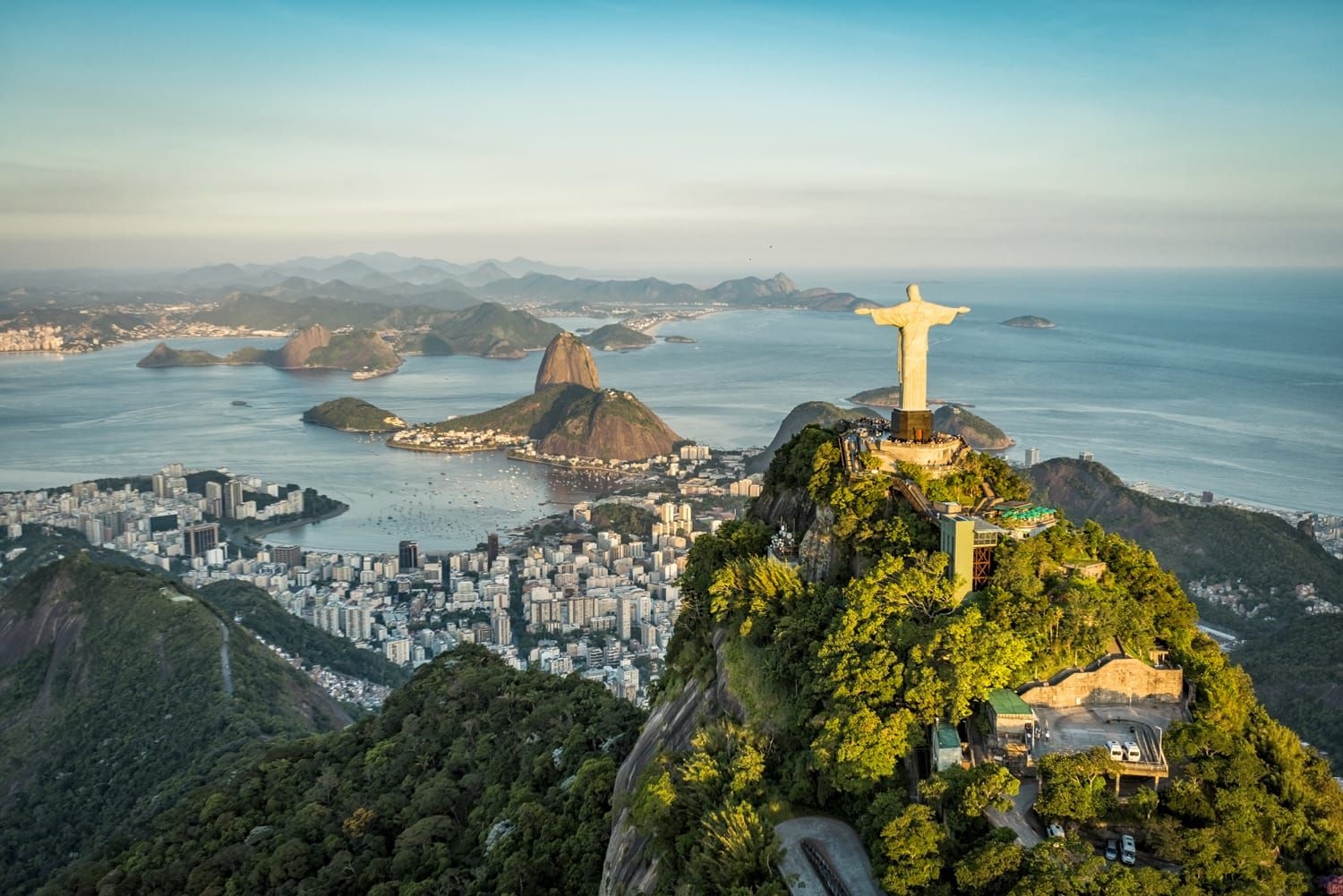 |
| Photo Pinterest |
Rio’s natural landscape started to be altered in the 17th and 18th centuries to allow sugar and coffee growing. Its parks and gardens later became protected, and as such attributed to the outdoor living culture of the city.
| The designated area consists of the following parts: Tijuca National Park, including Corcovado peak and its Christ the Redeemer statue Botanic Garden Flamengo Park The mouth of the Guanabara Bay, including the Sugar Loaf Copacabana Beach Front |
In granting heritage status, UNESCO commended the key features that have shaped and inspired the city’s development, such as Guanabara Bay and the Tijuca National Park - a sprawling urban forest in the west that cloaks the Corcovado Mountain down to the sea.
The Corcovado and the Christ statue were also highlighted, as were the city’s 200-year-old botanical gardens, were you can find ornamental bridges, carnivorous plants, and giant lilies. The waterfront spaces of Copacabana Bay, home to the city’s most famous beach, were honoured for contributing to the culture of outdoor living that is a defining characteristic of the city.
3. Venice and its Lagoon
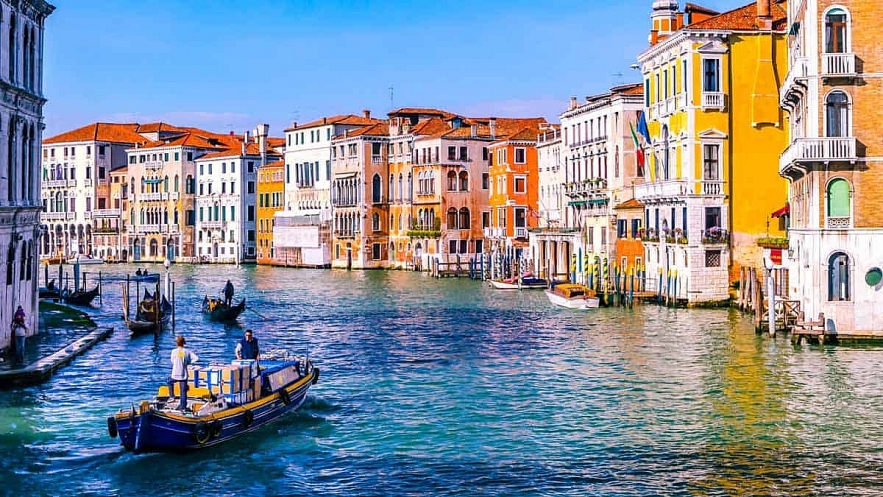 |
| Photo Go World Travel Magazine |
Celebrated throughout the world for its singular beauty, Venice and its lagoon were added to the list of UNESCO World Heritage Sites in 1987.
Venezia -vedutaFounded out of the necessity of fleeing the Barbarian Invasion in the 6th Century, Venice was already one of the most powerful cities in Europe around the year 1000. Beginning with the first settlements on the islands of Torcello, Iesolo and Malamocco, the city successively developed over 118 different islands, eventually becoming an important political, cultural and commercial center. Testaments to the power of the Marine Republic of Venice are still visible today, including its splendid piazzas, bridges, and palaces, inside of which are preserved the timeless artworks of Giorgione, Titian, Tintoretto, Veronese and many others.
The most famous place in Venice is, without a doubt, Piazza San Marco or St. Mark’s Square, the center from which rises the homonymous, five-domed St. Mark's Basilica. The bronze horses that dominate its main entrance were brought to Venice from Constantinople after the Fourth Crusade of 1204. Its interior is covered in mosaics (mostly in gold) that recount scenes from the Bible. The Basilica originally served as the chapel for the Doges of the Republic of Venice.
Next to the Basilica stands the Palazzo Ducale; these two buildings are joined by the monumental Porta della Carta. The Palazzo Ducale or Ducal Palace was, for several centuries, the most important government in Europe, administrated from inside the elaborate and lavish Higher Council Hall. The Campanile di San Marco (Bell Tower), realized in 1173, was reconstructed in front of the Palazzo Ducale after it collapsed in 1902. From the small loggia or gallery at the top of the bell tower (in the red marble of Verona) it is possible to admire reliefs depicting the ventures and undertakings of the “Republic of the Golden Lion.”
4. Kyiv
| Photo Destinations |
Kiev: Saint Sophia Cathedral and Related Monastic Buildings, the Kiev-Pechersk Lavra consists of a group of monuments known for their art, architecture and the spread of the Orthodox faith.
Kiev's Saint Sophia Cathedral was designed to rival the Saint Sophia of Constantinople. Prince Yaroslav the Wise built it to commemorate the victory over the Pechenegs (Asian nomadic tribes) and to glorify Christianity. From here the Orthodox religion spread over the larger Russian world. The cathedral was built in 1037, and still stands proudly in the old city center. It is open to visitors, and services are held.
Besides the Cathedral, also the Lavra Monastery is part of the World Heritage. The monastery dates from the 16th century, and consists mainly of catacombs under the ground.
5.Historic Center of Florence
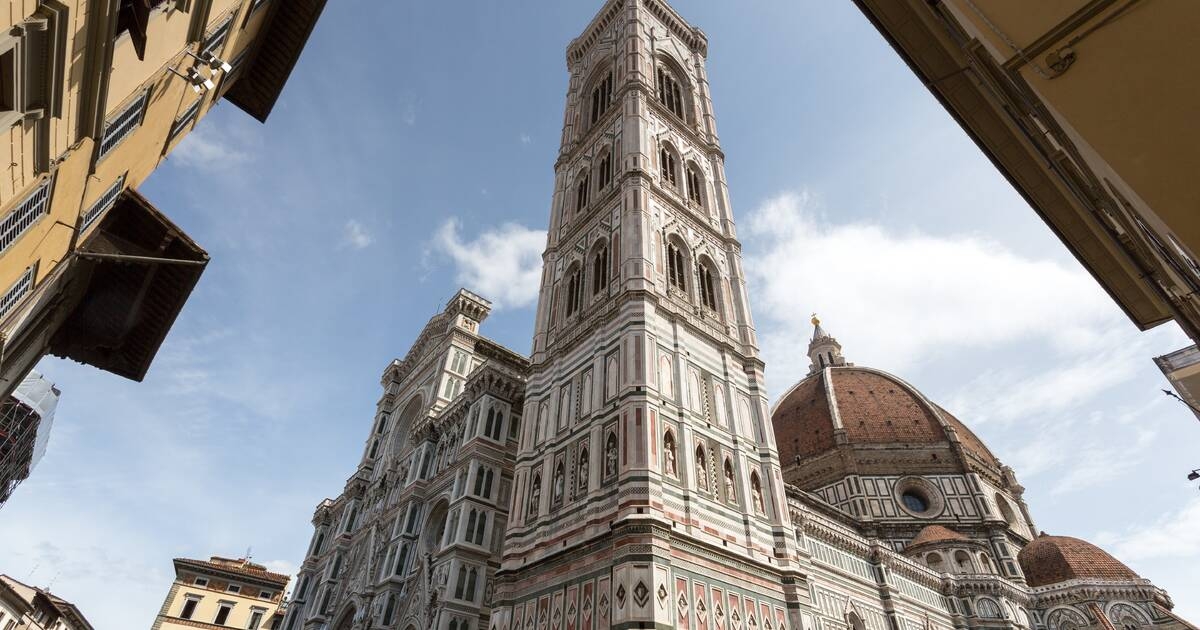 |
| Photo UNESCO |
Florence was built on the site of an Etruscan settlement and the later ancient Roman colony of Florentia (founded in 59 BC). This Tuscan city became a symbol of the Renaissance during the early Medici period (between the 15th and the 16th centuries), reaching extraordinary levels of economic and cultural development. The present historic centre covers 505 ha and is bounded by the remains of the city’s 14th-century walls. These walls are represented by surviving gates, towers, and the two Medici strongholds: that of Saint John the Baptist in the north, popularly known as “da Basso”, and the Fort of San Giorgio del Belvedere located amongst the hills of the south side.
The Historic Centre of Florence, enclosed by a circle of paths that over the old medieval wall of the city, was admitted onto the World Heritage List in 1982 during the sixth session of the UNESCO World Heritage Committee.
In February 2005, the desire to preserve and appreciate the city’s great heritage led to the establishment of the specific UNESCO Office of the Municipality of Florence.
The Office was created in order to respond to the primary needs of creating a document, the Management Plan, to protect and enhance the UNESCO World Heritage site “Historic Centre of Florence” and to fullfill the provisions of the UNESCO Convention 1972 concerning the protection of the World Cultural and Natural Heritage.
6. Historic Center of Prague
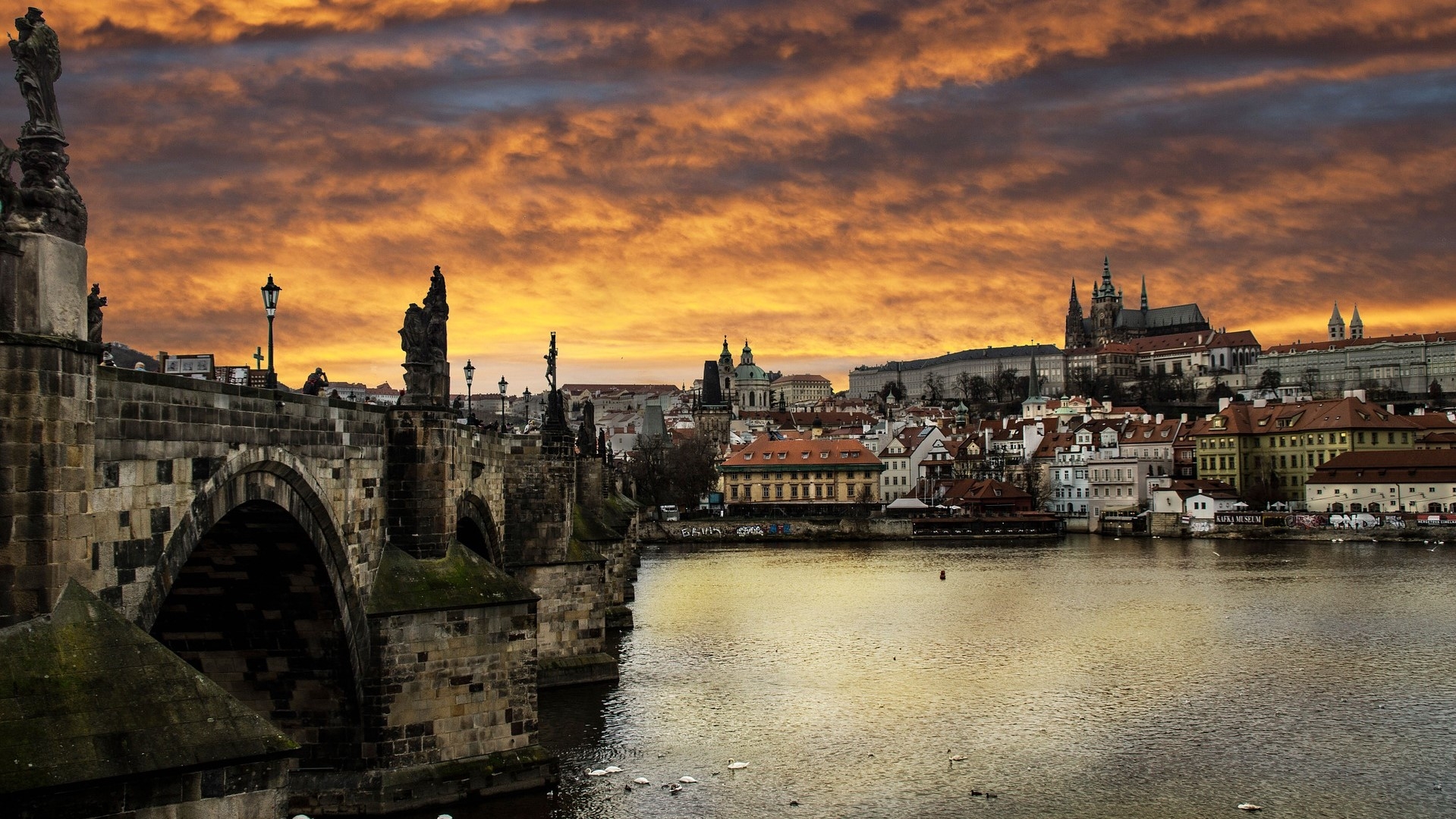 |
| Photo kafka desk |
Built between the 11th and 18th centuries, the Old Town, the Lesser Town and the New Town speak of the great architectural and cultural influence enjoyed by this city since the Middle Ages. The many magnificent monuments, such as Hradcany Castle, St Vitus Cathedral, Charles Bridge and numerous churches and palaces, built mostly in the 14th century under the Holy Roman Emperor, Charles IV.
The Historic Centre of Prague played a prominent role in medieval Central Europe. It has seen continuous urban development from the Middle Ages to the present, resulting in an architectural ensemble of outstanding quality.
READ MORE: Top 10 Most Popular Holidays in November Around The World
7. Budapest
Banks of the DanubeThe banks of the Danube in Budapest were added to the World Heritage List in 1987. This encompasses from the Gellért Hill to Margaret Bridge. Sites along this stretch of the Danube include the Rudas Baths, the Chain Bridge, Liberty Bridge, Elizabeth Bridge, Gresham Palace, the Hungarian Academy of Sciences, the neo-gothic Parliament, and the Vigadó concert hall.
In addition to these prominent buildings, the banks of the Danube are lined with 19th century buildings, which are also protected under the World Heritage List. We recommend the spectacular view of this part of the Danube from either Margaret Bridge or Chain Bridge, or from up-high on Gellért Hill or Fisherman’s Bastion.The historical significance of this stretch of the Danube also relates to the ancient Roman town of Aquincum that was centred at what is now Óbuda. It was a border province of the Roman Empire in the 2nd Century AD and capital of what was then Pannonia.
8. Brasilia
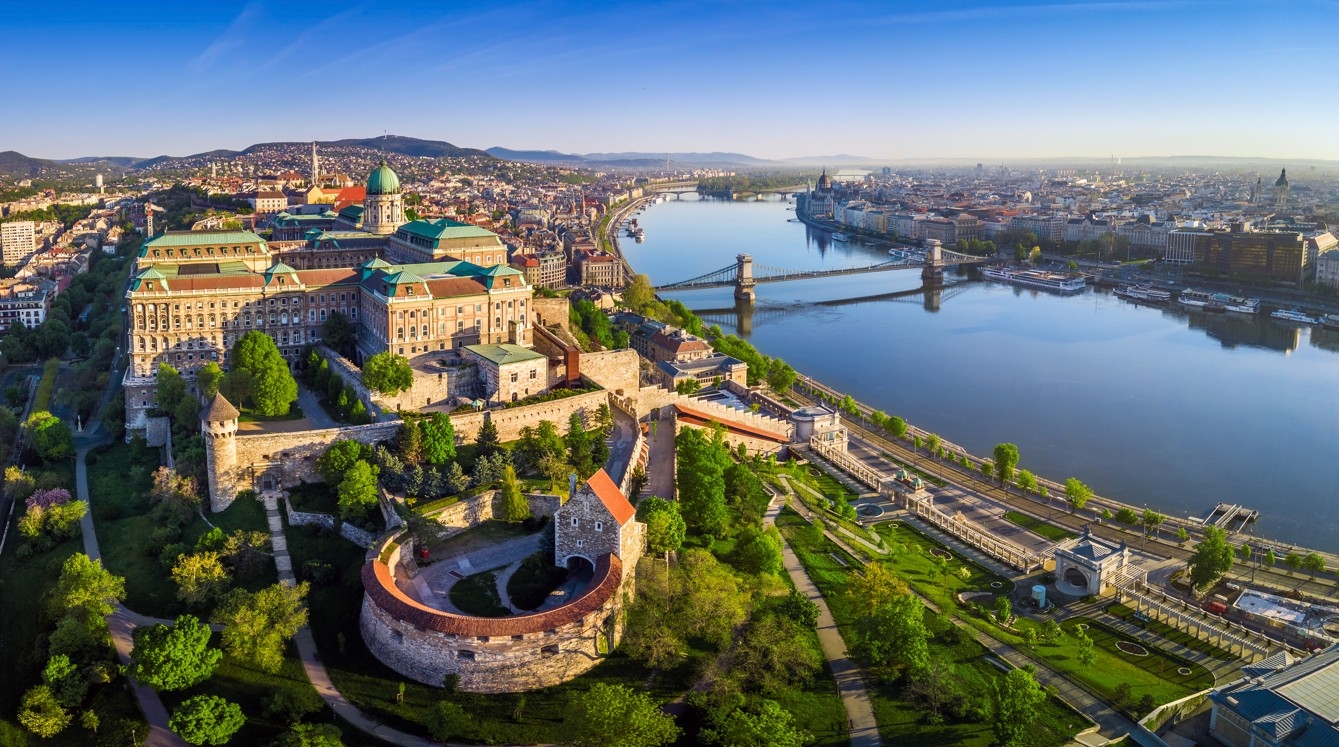 |
| Photo FCC Environment |
Brasília is the federal capital of Brazil and seat of government of the Federal District. Laid out along an east-west axis crossed by a north-south axis, curved to follow the topography as a transportation thoroughfare, Brasília is a definitive example of 20th century modernist urbanism.
Brasília was chosen as a UNESCO World Heritage Site due to its modernist architecture and uniquely artistic urban planning. The city's design divides it into numbered blocks as well as sectors for specified activities, such as the Hotel Sector, the Banking Sector and the Embassy Sector.
Brasília was planned and developed by Lúcio Costa, Oscar Niemeyer and Joaquim Cardozo in 1956 in a scheme to move the capital from Rio de Janeiro to a more central location.
The landscape architect was Roberto Burle Marx. Brasília was named "City of Design" by UNESCO in 2017, and has been part of the Creative Cities Network since then.
Laid out along a monumental east-west axis, crossed by a north-south axis curved to follow the topography as a transportation thoroughfare, Brasília is a definitive example of 20th century modernist urbanism.
9. Historic Center of Saint Petersburg
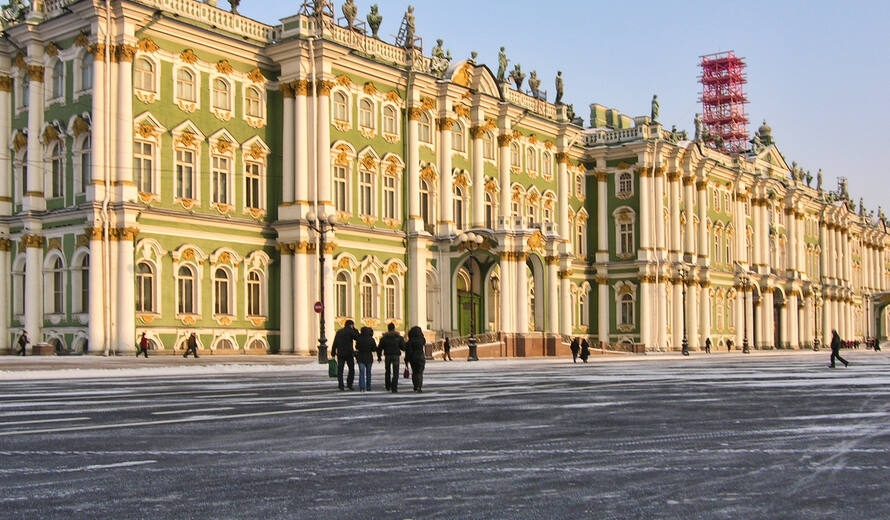 |
| Photo UNESCO |
“Historic Centre of Saint Petersburg and Related Groups of Monuments” became the first Russian site to be inscribed on the UNESCO list in 1990. This site is unique in its scale not only for Russia but for the entire world. The site consists of 36 components and 86 elements, located on the territory of two constituent regions of the Russian Federation – City of Saint Petersburg and Leningrad Region. The historic centre of Saint Petersburg is the nucleus of this nomination; its area is around 4,000 hectares. The borders of the site cover the territory of over 23,000 hectares.
St. Petersburg is with 4.6 million inhabitants Russia's second largest city after Moscow. It is a major European cultural centre and an important port on the Baltic Sea. Located right at the mouth of the Neva, the city stretches across 42 Island with countless natural waterways, channels and bridges, which gave it the nickname "Venice of the North". However, St. Petersburg is a bustling metropolis, that has nothing lost of its historic appeal.
READ MORE: Top 10 Most Haunted & Ghost Places in Russia
10. City of Quito
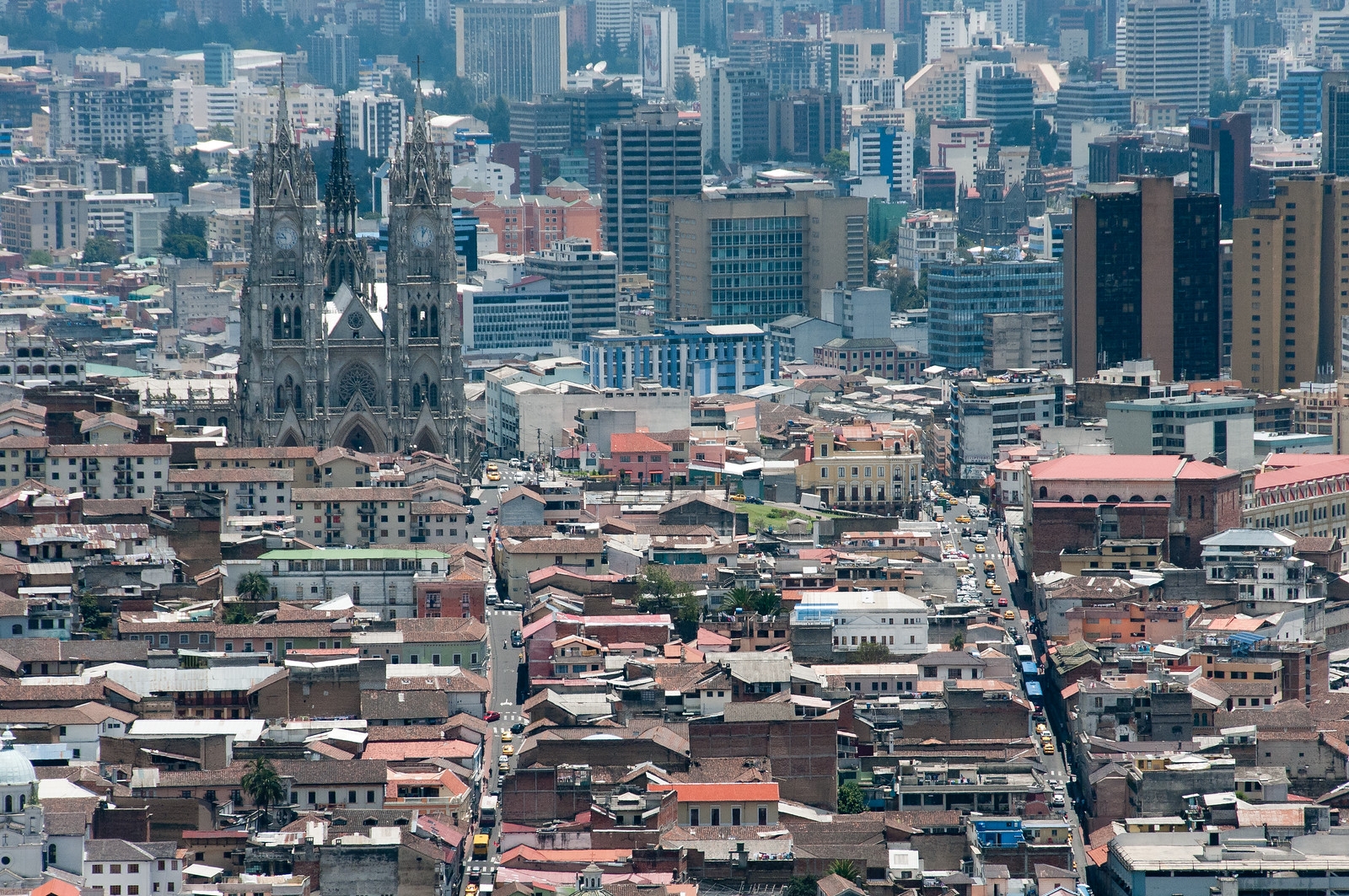 |
| Photo UNESCO |
At 9,200 feet above sea level and stretching for 36 miles on a plateau lined with volcanoes, Quito was the first city ever to be declared a UNESCO World Heritage Site back in 1978 owing to its geographical beauty, 18th-century architecture, priceless Colonial treasures, and its living traditions and culture.
In fact, recently Quito enjoyed the distinction of being named the American Capital of Culture. Yet for too long travelers have bypassed it for that nation’s most famous attraction, the nearby Galapagos Islands. Not any longer.
Over the last decade, city planners have dedicated themselves to making Quito more inviting by investing $500 million in improvements. With this major renaissance, the city is now one of the prime travel destinations in the South America, and some think, the world.
Full List of 30 most popular UNESCO World Heritage Sites according to Instagram users:
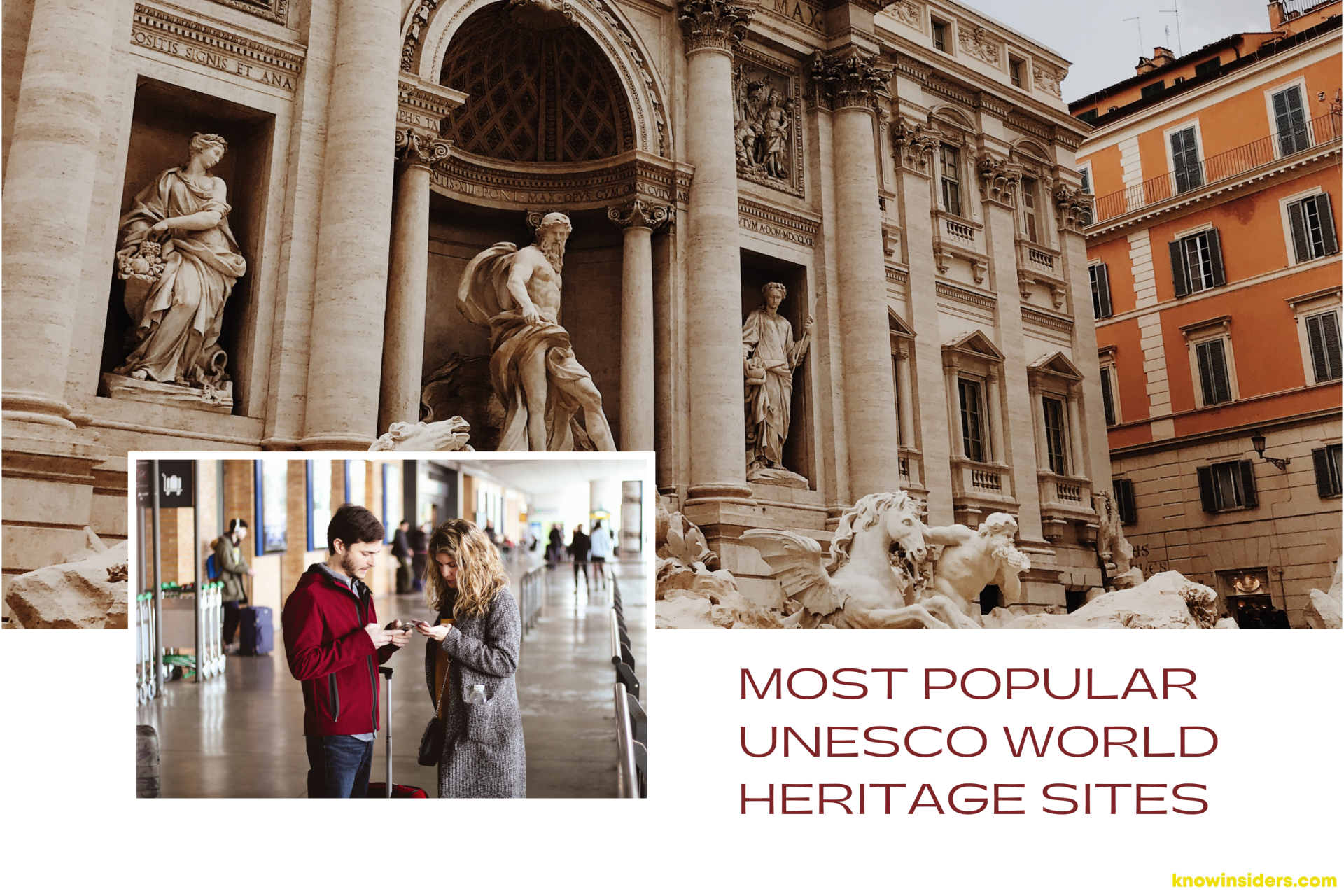 |
| Photo KnowInsiders |
1. Historic Center of Rome: 61,244,436 votes
2. Rio de Janeiro: 45,039,569
3. Venice and its Lagoon: 25,755,922
4. Kyiv: 21,914,502
5.Historic Center of Florence: 21,516,815
6. Historic Center of Prague: 17,731,077
7. Budapest: 14,665,910
8. Brasilia: 13,277,931
9. Historic Center of Saint Petersburg: 11,987,336
10. City of Quito: 9,854,551
11. Old and New Towns of Edinburgh: 9,779,579
12. Historic Site of Lyon: 9,400,931
13. City of Verona: 5,661,681
14. Rabat: 4,629,743
15. Yosemite National Park: 4,611,905
16. Grand Canyon National Park: 4,021,300
17. Old Havana and its Fortification System: 4,017,138
18. Cultural Landscape of Bali: 3,985,530
19. Cathedral of Notre Dame: 3,787,550
20. Works of Antoni Gaudí: 3,451,098
21. City of Luxembourg: 3,450,869
22. Historic Center of Salzburg: 3,195,863
23. Göreme National Park: 3,009,297
24. Canadian Rocky Mountain Parks: 2,996,880
25. Yellowstone National Park: 2,832,668
26. Antigua Guatemala: 2,765,980
27. Old City of Dubrovnik: 2,637,398
28. Dorset and East Devon Coast: 2,629,228
29. The Dolomites: 2,532,349
30. Swiss Alps Jungfrau-Aletsch 2,261,394
 Top 5 Most Attractive Places in Alaska Top 5 Most Attractive Places in Alaska Best places to visit in Alaska: Alaska is easily the largest state within the United States, at 586,412 square miles, offering visitors thousands of attractions ... |
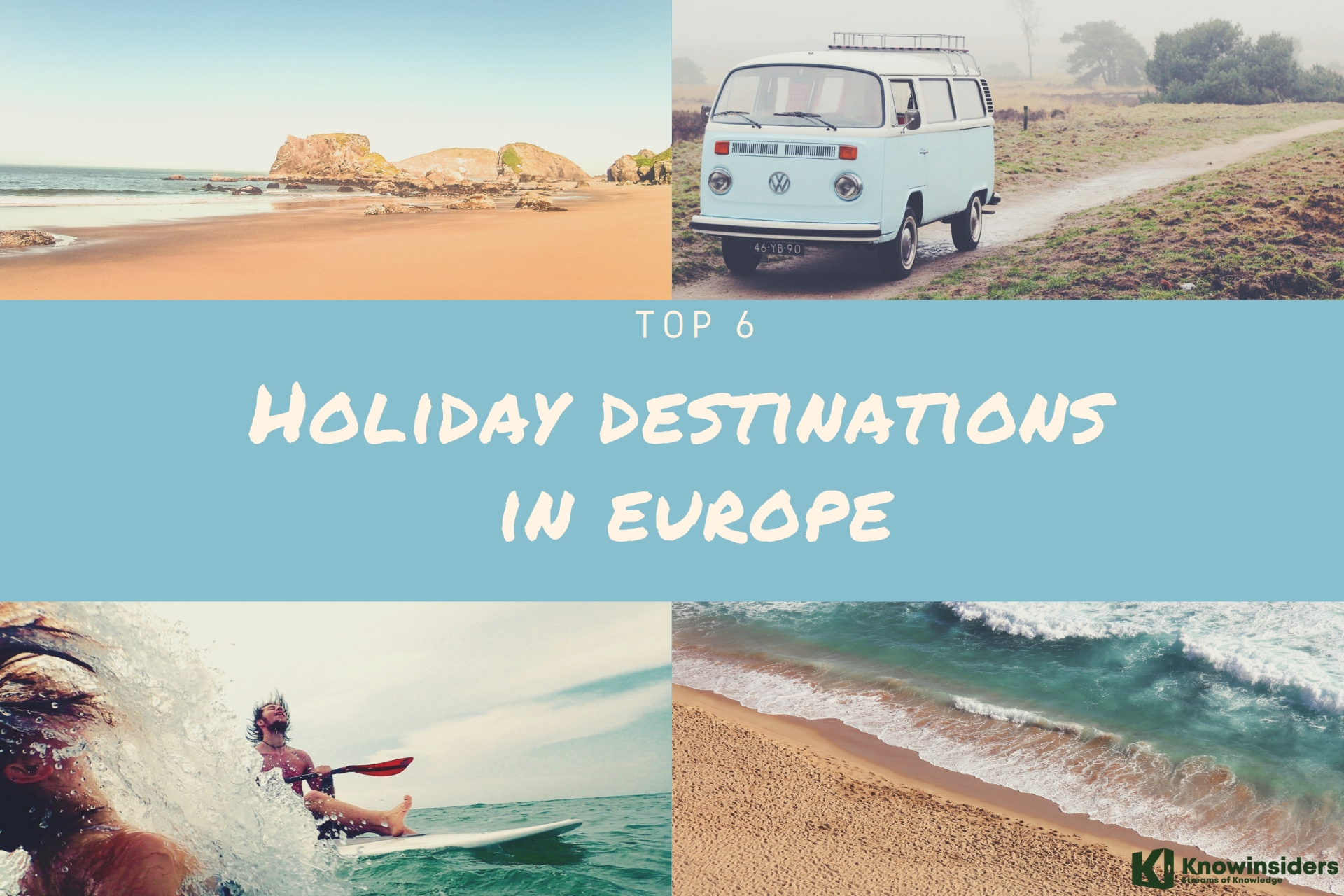 Where Are The Best Holiday Destinations In Europe Today Where Are The Best Holiday Destinations In Europe Today Where would you like to go on holiday in Europe as soon as it is safe to travel? Discover top European holoday wishlist right below! |
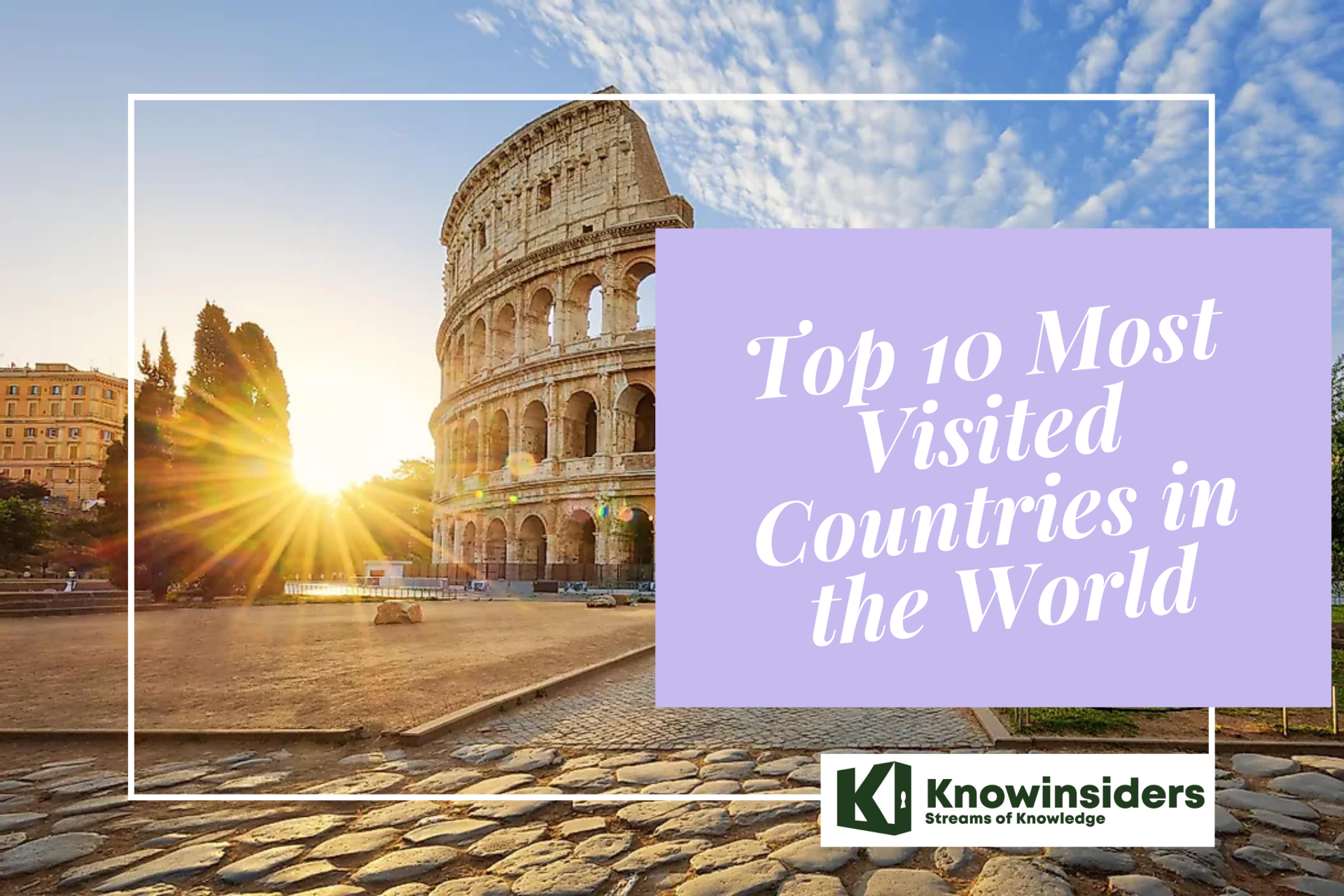 Top 10 Most Visited Countries in the World for 2021 Top 10 Most Visited Countries in the World for 2021 If you’re looking to update your destinations bucket list, look no further than the following countries. Here below are the top 10 most visited countries ... |



























